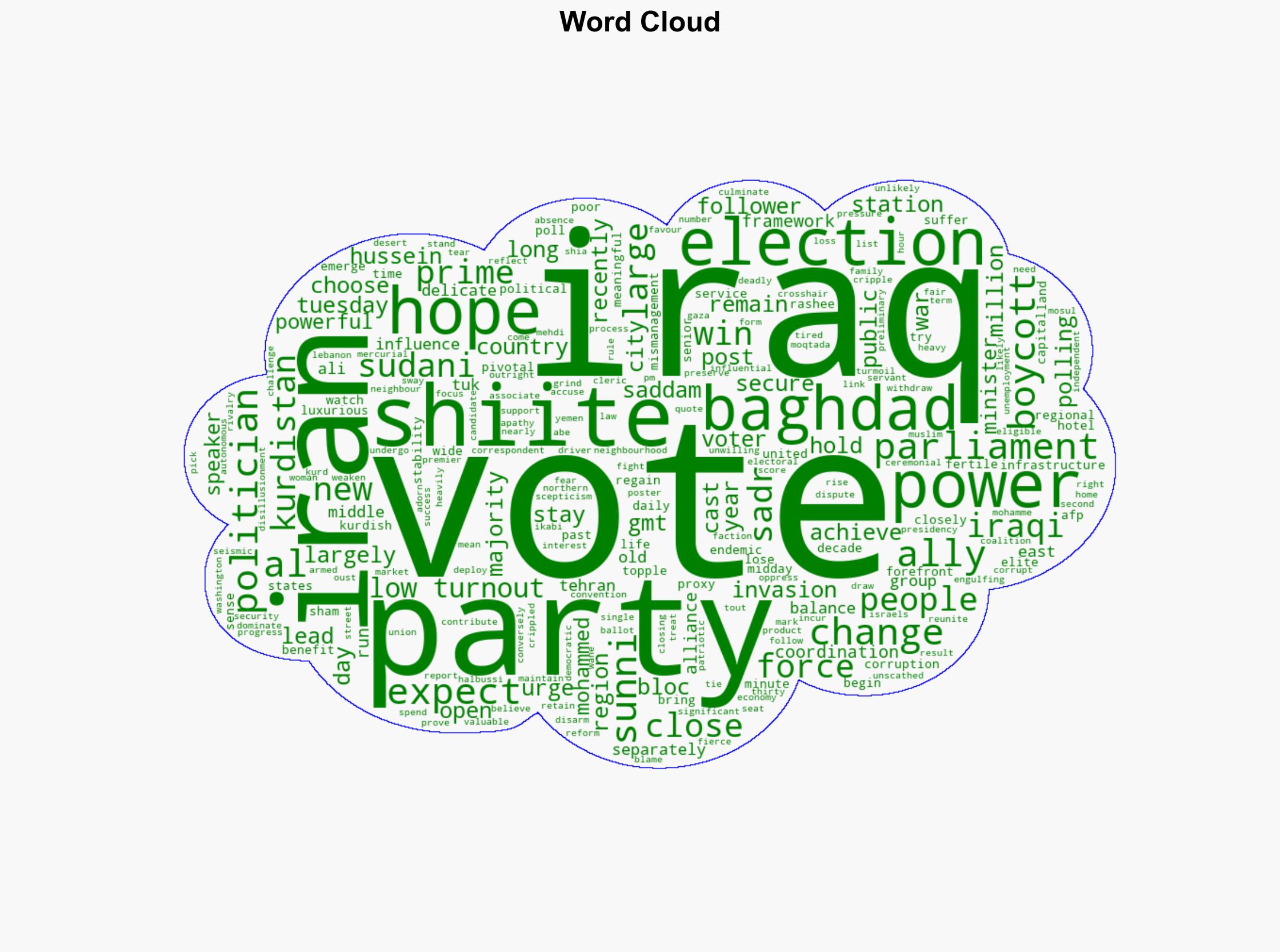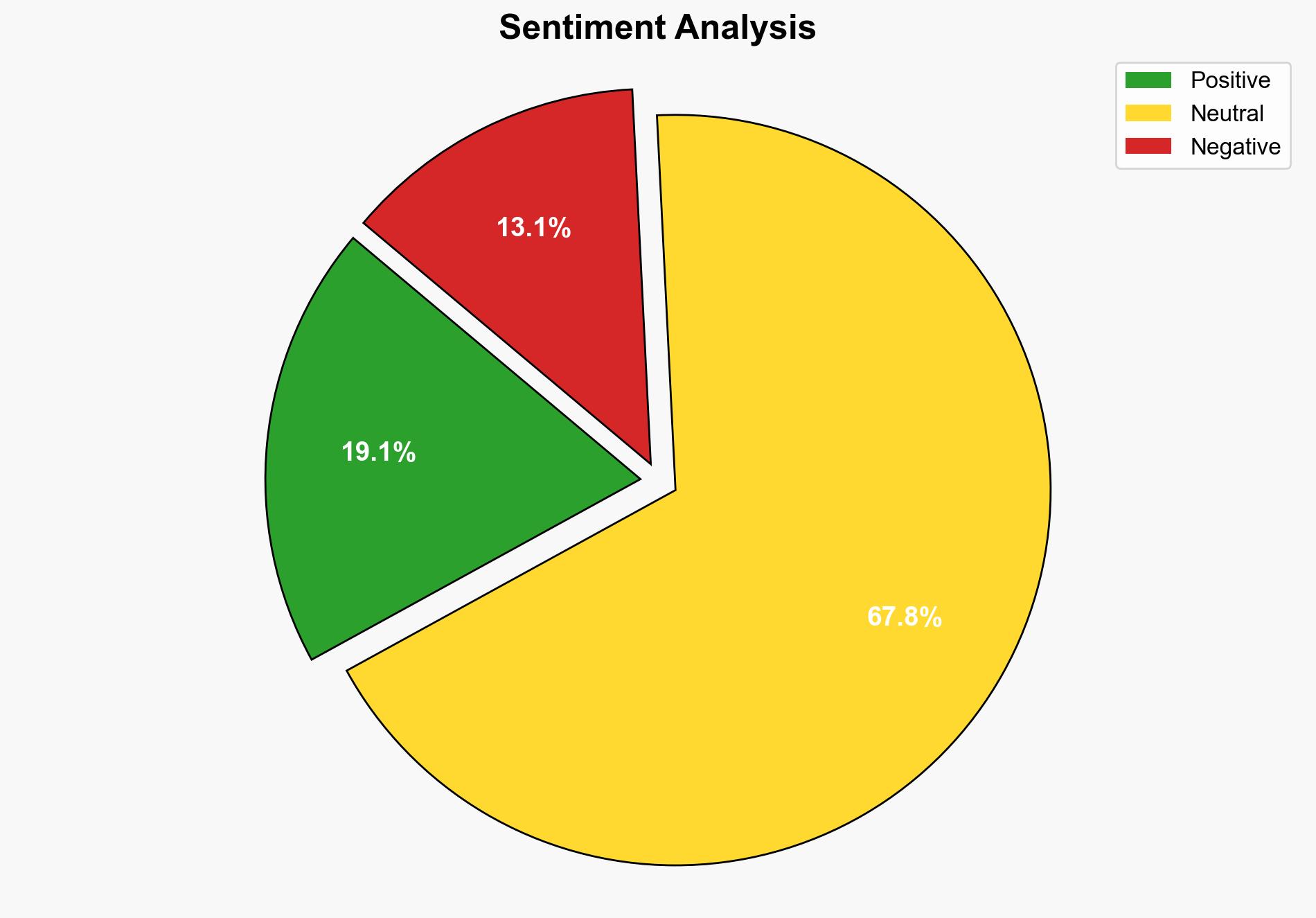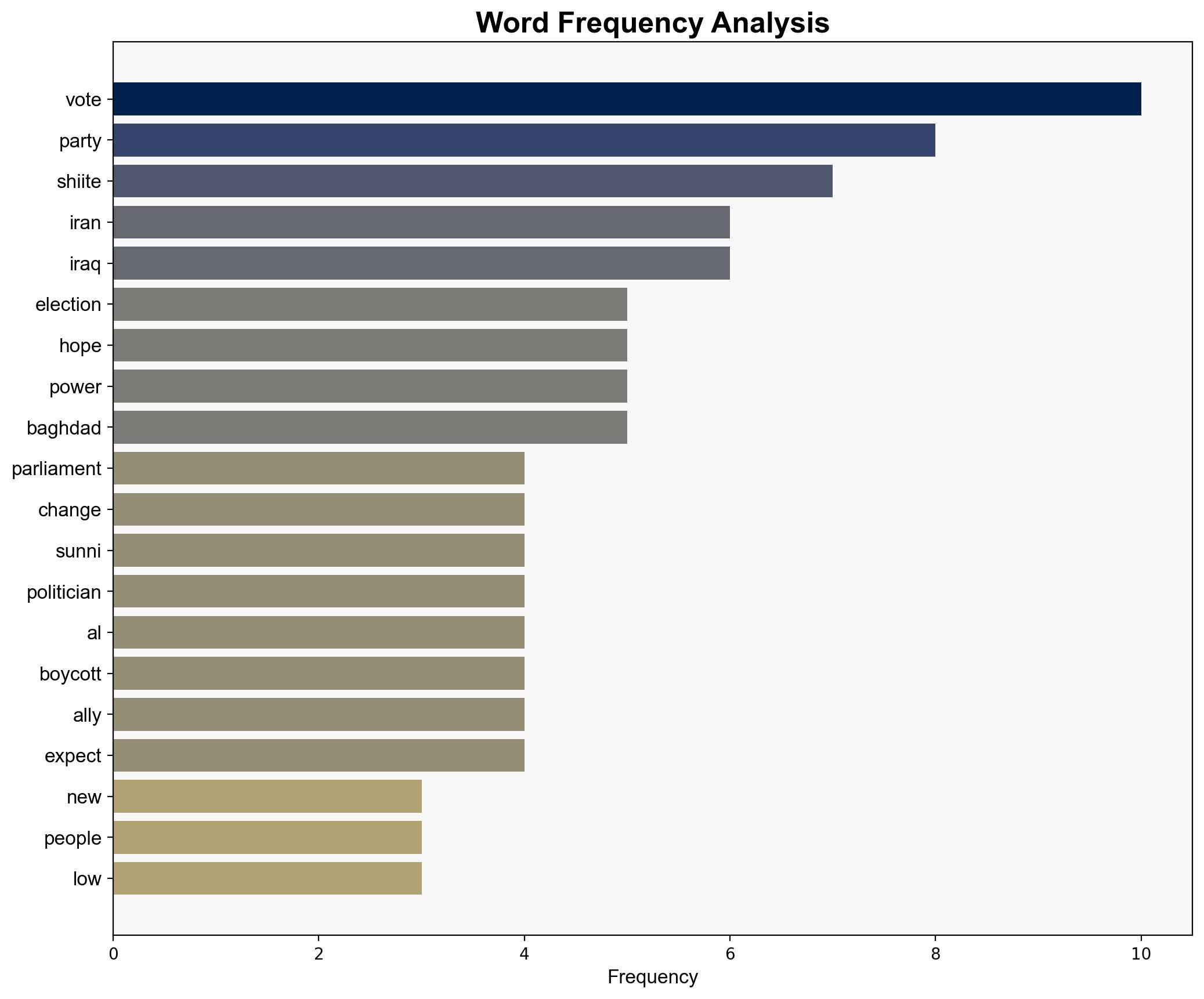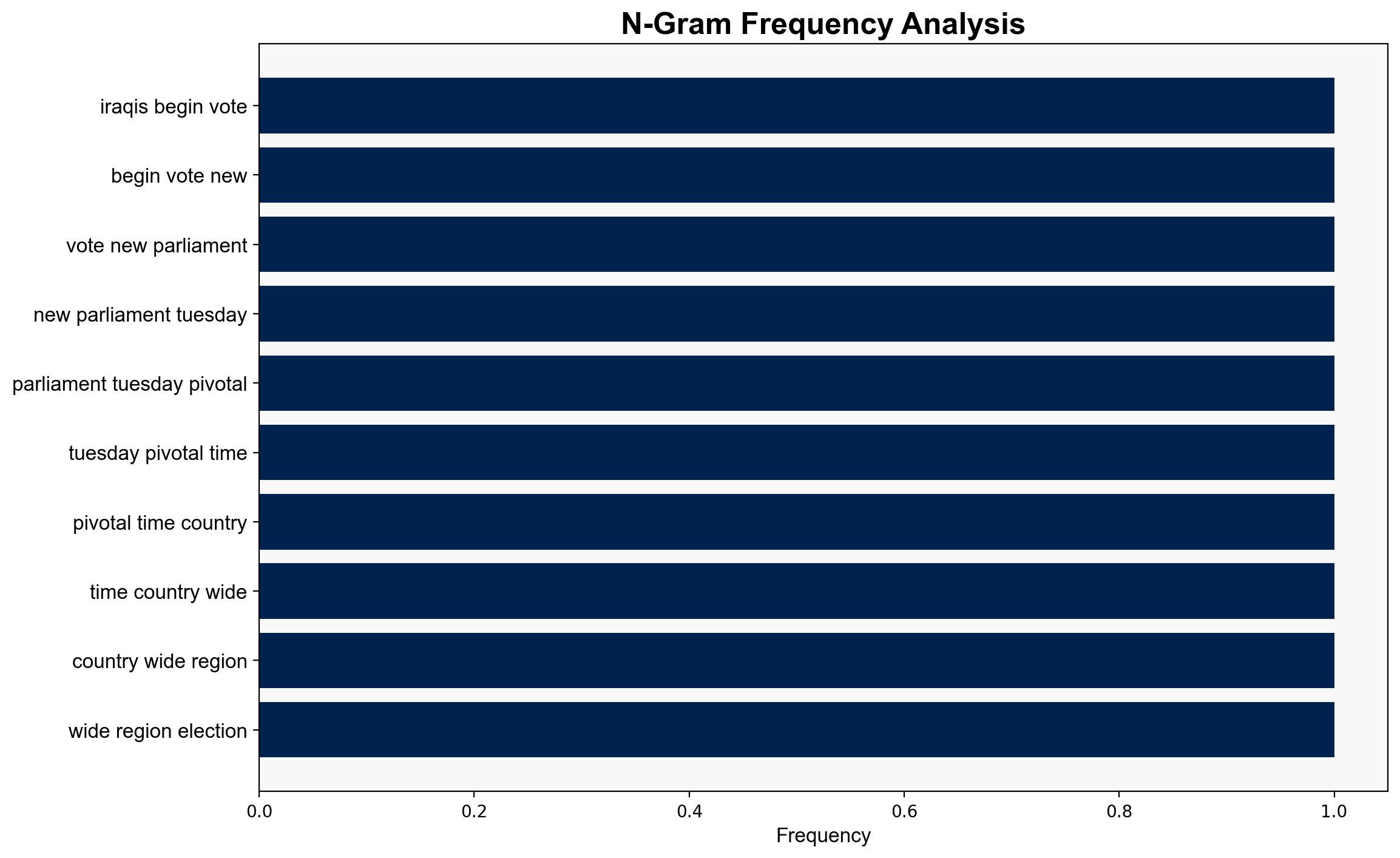Iraqis vote in general election at a crucial regional moment – Digital Journal
Published on: 2025-11-11
AI-powered OSINT brief from verified open sources. Automated NLP signal extraction with human verification. See our Methodology and Why WorldWideWatchers.
Intelligence Report: Iraqis vote in general election at a crucial regional moment – Digital Journal
1. BLUF (Bottom Line Up Front)
With a moderate confidence level, it is assessed that the Iraqi general election will not lead to significant political change due to entrenched political structures and external influences. The most supported hypothesis is that the election will maintain the status quo, with Shiite parties retaining power, backed by Iranian influence. Recommended action includes monitoring post-election coalition formations and preparing for potential unrest due to voter disillusionment.
2. Competing Hypotheses
Hypothesis 1: The election will result in a continuation of the status quo, with Shiite parties maintaining power and Iranian influence remaining strong. This is supported by the historical dominance of Shiite parties and Iran’s vested interest in maintaining influence in Iraq.
Hypothesis 2: The election could lead to a shift in power dynamics, with increased influence from Sunni or Kurdish factions, potentially reducing Iranian influence. This is less likely due to the entrenched political system and lack of significant new political movements gaining traction.
3. Key Assumptions and Red Flags
Assumptions: It is assumed that the current political alliances will remain stable post-election and that voter turnout will not significantly alter the power balance.
Red Flags: Low voter turnout and the boycott by influential figures like Moqtada Sadr could indicate widespread disillusionment, potentially leading to unrest.
Deception Indicators: Political rhetoric promising change without substantive policy shifts could mislead both domestic and international observers.
4. Implications and Strategic Risks
The continuation of the status quo may exacerbate public disillusionment, increasing the risk of civil unrest. Regionally, persistent Iranian influence in Iraq could heighten tensions with the United States and its allies. Economically, ongoing mismanagement and corruption could deter foreign investment and hinder economic recovery.
5. Recommendations and Outlook
- Monitor coalition negotiations closely to anticipate shifts in political alliances.
- Engage with local civil society organizations to gauge public sentiment and identify potential flashpoints for unrest.
- Best-case scenario: A stable government forms that addresses corruption and infrastructure issues, leading to gradual improvement in public services.
- Worst-case scenario: Political gridlock and increased sectarian tensions lead to widespread unrest and potential violence.
- Most-likely scenario: The election results in a continuation of the status quo, with minor adjustments in political alliances but no significant policy changes.
6. Key Individuals and Entities
Moqtada Sadr, Mohammed Shia al-Sudani, Coordination Framework, Shiite parties, Iranian-backed factions.
7. Thematic Tags
Regional Focus
Structured Analytic Techniques Applied
- Causal Layered Analysis (CLA): Analyze events across surface happenings, systems, worldviews, and myths.
- Cross-Impact Simulation: Model ripple effects across neighboring states, conflicts, or economic dependencies.
- Scenario Generation: Explore divergent futures under varying assumptions to identify plausible paths.
- Narrative Pattern Analysis: Deconstruct and track propaganda or influence narratives.
Explore more:
Regional Focus Briefs ·
Daily Summary ·
Methodology





